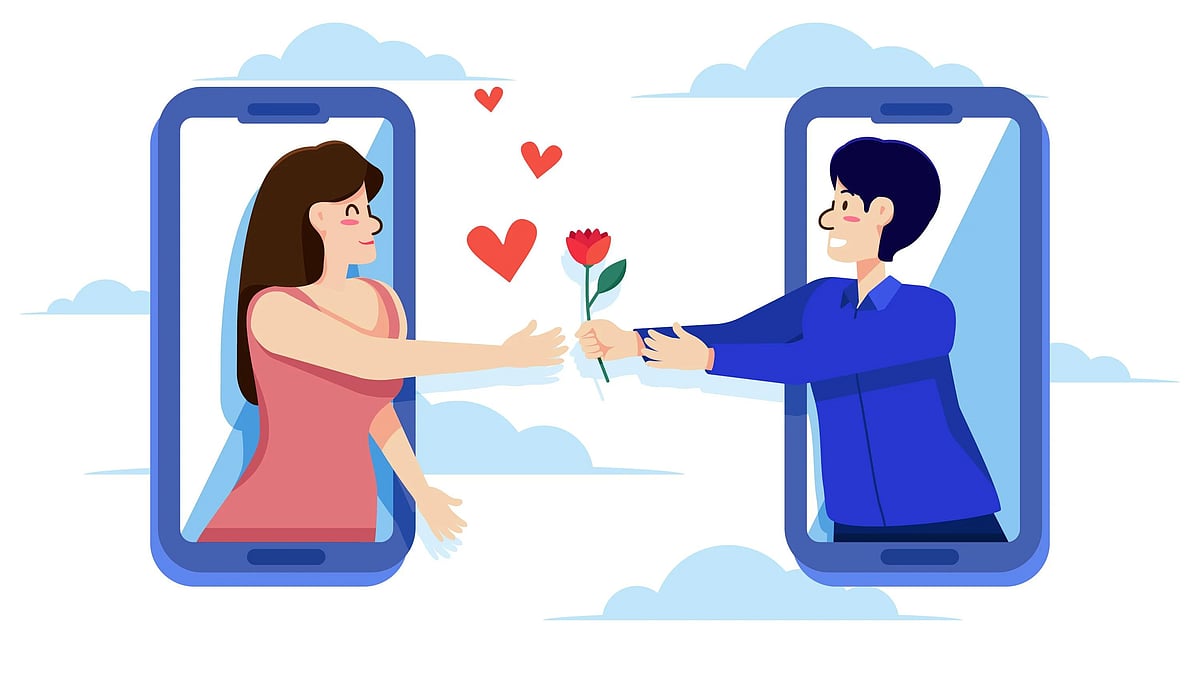Have you been feeling a twinge of guilt lately in whipping up a feel-good vibe for yourself? Perhaps, you’re experiencing what’s being commonly called ‘thriver’s guilt’. Anxiety and a general sense of gloom are common in the Covid times. As per scientific (LinkedIn) terminology, thriver’s guilt refers to “feeling embarrassed about being upbeat when others aren’t... Guilty about newfound creativity, rediscovered interests, and for being happy when so many people are stressed and suffering.”
Simply put, it’s a new kind of guilt trip — only a lot debilitating in times like these.
Perform without strings attached
“I think feeling awful about one’s privilege these days is a constant state of mind these days,” says Monika Manchanda, chief culinary officer at LiveAltLife.
“You wonder why are you cribbing about having to load a dishwasher, arguing about who will empty the vacuum bag or fold the laundry when there are people dying because of lack of healthcare. You wonder why are you missing eating out or meeting friends when others don’t even have food to eat because their regular income has dried up,” she says.
But, this new kind of guilt trip can eat you from within only if you allow it, believes Monika. “I have realised that I can do things only when I am at peace. So, I have stopped feeling guilty about the occasional TLC. I work hard, volunteer and do as much as I can and then pamper myself now and then. I haven’t checked with the therapist specifically about this but I am talking to someone to deal with my anxiety.”
Deepayan Roy, a PR professional, says that “doing your bit” no matter how insignificant it might seem will alleviate feelings of helplessness and needless guilt. He says, “While I consider myself to be fortunate and blessed for having a secured work environment and a team that supports like a family, I do feel guilty sometimes for not being able to help people in need.

“I try to balance this feeling by sharing as much information as I can on the availability of COVID resources around me.” Roy recently finished a course in Reiki healing. “This is a great way to control toxic thoughts,” he says. “I try to send out my prayers to people who are sad and depressed. I believe staying optimistic and spreading positivity.”
Form a routine
Anindita Kannan, a young brand professional, practised breathing techniques and exercised to relax and be calm. “It is important to keep a routine and stay active. Make small weekly goals and try achieving them,” she says.
Following these steps, Kannan dealt with anxiety and negative thoughts. “I continued working hard and felt blessed to be in my position. The years 2020 and 2021 have taught us to be happy, content and honest. I also decided to donate 10% of my monthly earnings to various NGOs. The only way I see out of the thriver’s guilt syndrome is by trying to follow your process and practise relaxation.”
Speak up
Roy also urges young people to speak it out. “Not venting out emotions can actually make our minds dull and toxic. Journaling our thoughts or talking about them with someone is helpful to a large extent. I feel I am more expressive with colours. So, whenever a negative thought strikes, I paint or draw to calm myself. Empathy begins with oneself, and often within oneself. And as it’s said, you can’t fill from an empty cup, so get going before you begin giving.”
Expert take
Confused whether you are suffering from the thriver’s guilt syndrome? Here are the signs to look out for.
Dr Neeraj Raj B, consultant — psychiatrist, Aster RV Hospital, says, “If anyone is showing behaviour changes like a loss of appetite, sleeplessness, mood fluctuations, low-energy levels, irritability and so on, then the family members, friends or the person can take this as an opportunity for some self-probing. If the cause of the symptoms is found to be thriver’s guilt, they can then take steps to address that. The symptoms would differ from person to person and how one chooses to cope with those feelings. Since the lockdown has particularly been a challenge when it comes to mental health, it’s always a good idea to check in on each other every now and then. The goal is to develop healthier coping patterns to deal with any adverse feelings.”
Dr Pallavi Arvind Joshi, consultant — psychiatrist, Columbia Asia Hospital Whitefield (A unit of Manipal Hospitals), suggests people to wait it out and observe one’s feelings for a short period before consulting a therapist. “Having a guilty, low, frustrated feeling persistently only spreads negativity and can impact your life. If you are having a persistent guilty feeling for more than two weeks, consult your doctor.”
Why the guilt feeling
It depends on each person’s thought process that is leading to feelings of guilt. Usually, guilt arises when there is a conflict between the existing and expected reality. One reason could be that young adults feel they have a responsibility towards society and do not know how they can contribute or are unable to contribute. Another reason could be that the lockdown and remote working have given relief from a hectic lifestyle and more chance to spend time at home with family, pets and reconnecting with friends. However, the mind perceives it as being comfortable when there is a pandemic raging. Highly empathetic individuals could be more in tune with the suffering around them and could be experiencing more guilt.
How to deal with it
1. One way is to search for avenues to give back. You can become a COVID volunteer, donate towards organisations that are fighting against the virus and look for ways to contribute to society.
2. If dysfunctional thought patterns are causing serious feelings of guilt, it is time to explore those. By keeping yourself healthy and happy, you are in a better position to affect positive change for others. Therefore, understand the root cause of your guilt. Challenge those thoughts and try to replace them with more productive or positive thought patterns that will help you. Solutions would depend on the extent of guilt being faced by the person.
3. Make it a point to do one thing daily that enhances your kindness quotient toward yourself and those around you.
– Dr. Neeraj Raj B, consultant - psychiatrist, Aster RV Hospital















